Health Equity and Governance
- Home
- Page
- Health Equity and Governance
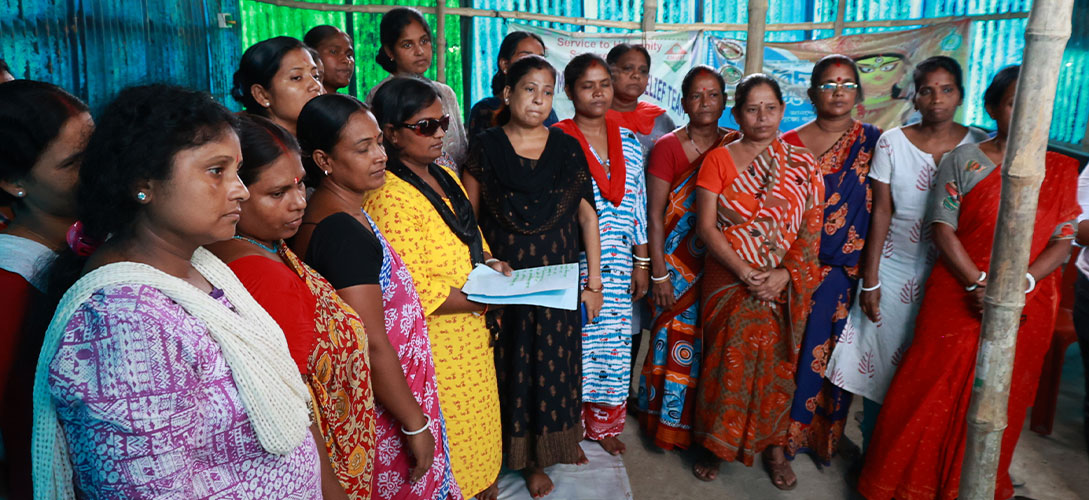
Small Scale Studies of NRHM Implementation
The National Rural Health Mission introduced the important concepts of community participation and accountability into public health planning for the first time in India. CHSJ undertook several initiatives to strengthen these components:
Strengthening Community Participation and Accountability in the NRHM – The National Rural Health Mission (NRHM) was launched April 2005 to develop a new architecture of the health system to enable it to provide access to quality health care services to the rural poor. Community participation was a key element of NRHM and CHSJ was engaged in several initiatives to promote Community Participation with a focus on Accountability within NRHM. CHSJ was among the first organisations in the country to draw attention to the need for Accountability in health policy and programming.
- Annual Consultations on NRHM – NRHM was developed in close collaboration with civil society experts. Many of CHSJ’s Advisors and the then Director were involved in this process. Community engagement was a key element of NRHM during its inception. CHSJ convened an annual Civil Society Review of NRHM implementation in NRHM high focus states for three years.
- Leadership Training of District Programme Managers – NRHM included a process of decentralised planning and monitoring. A new cadre of District Programme Managers (DPM) were introduced as the fulcrum of this decentralised implementation process. CHSJ conceived a Leadership Training Programme for DPMs in partnership with the University of Washington. Two rounds of this training programme were held, first in collaboration with National Institute of Health and Family Welfare in New Delhi in 2009 and then again in 2010 for all the DPMs of Assam in collaboration with the State NRHM, Assam.
- Decentralised Planning in NRHM – CHSJ contributed to developing the NRHM Decentralised planning framework. It implemented a pilot project for decentralisation planning in Rajasthan supported by UNICEF and SC Mathur SPRI, Jaipur. The results of this pilot were shared with the MoHFW.
Community Monitoring of NRHM
Secretariat for the Advisory Group on Community Action (AGCA) and in partnership with Population Foundation of India implemented the pilot project on Community Monitoring on NRHM (2007 – 09) in 36 districts of 9 states across the country. The pilot project was meant to introduce accountability of the health system to communities and was supported by the Ministry of Health and Family Welfare Government of India, and the process of Community Monitoring was subsequently included within the regular planning process of the state government NRHM. This pilot project covered 1620 villages across the country and CHSJ conceptualised and coordinated the overall process with the support of AGCA members and state Nodal Agencies. This methodology has subsequently been expanded into Community Action in Health and continues to be implemented in a majority of states in the country.
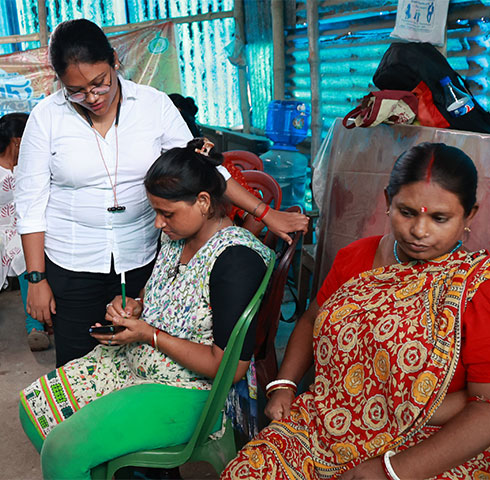
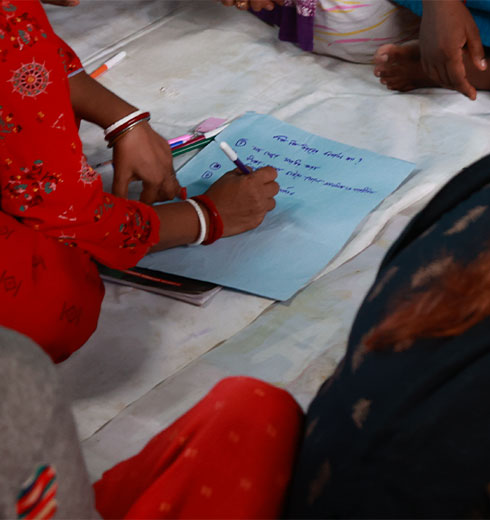
Rapid Assessment of NRHM
NRHM promised to bring quality and affordable services to the rural poor in India. It included an accountability framework and CHSJ facilitated a number small-scale studies which were conducted as a dip-stick evaluation to understand NRHM implementation. These studies were shared with the MoHFW and Planning Commission of India and these were acknowledged as important sources of independent feedback by the government
- Rapid Assessment of Health Programmes (RAHP) – RAHP was a year long capacity building programme for training researchers in the non-government sector to conduct small scale studies using robust methodology. Over 30 NGOs were trained across the country through two rounds of RAHP and XX reports were shared with policy makers. The training implemented in partnership with the School of Public Health University of Washington USA and the second round of RAHP was conducted in collaboration with School of Public Health, SRM University, Chennai.
- Small Scale Studies – Several small-scale studies were also conducted independently to look at various dimensions of health care service delivery in specific areas and among specific population groups.
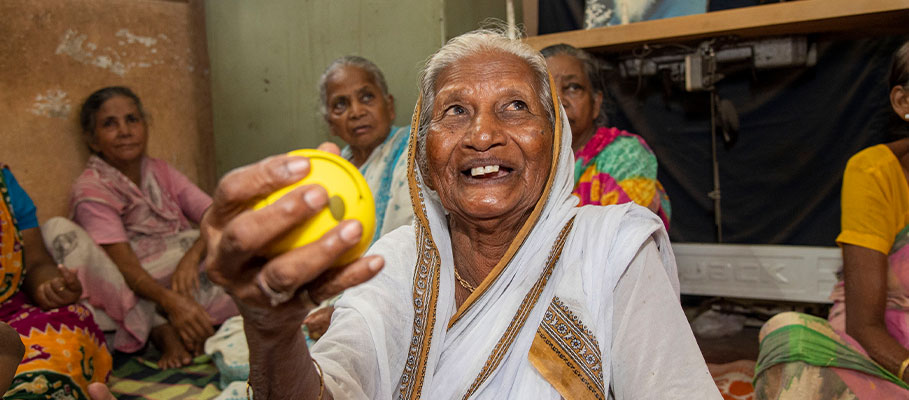
Equity in Access to Healthcare Services –
- Access to medicines – The project Tracing Pharmaceuticals in South Asia (TPSA) was implemented in partnership with SAHAYOG, Lucknow, Martin Chautari, Nepal and University of Edinburgh, UK. The purpose of this project was to understand the distribution and access to medicines related to key health issues. The distribution pattern of three index drugs – Rifampicin, related to the tuberculosis treatment and part of the national TB control programme, Oxytocin – a drug used for controlling post partum bleeding and for augmenting labour and related to the maternal health programme, and Fluoxetine an antidepressant drug were studied in this project.
Equity in National Health Programmes –
CHSJ conducted several studies to understand the equity in health service delivery. These included desk reviews based on existing data as well as field investigations. These included:
- Social Exclusion and Maternal Health.
- Social Exclusion and T.B.
- Maternal Health Care for Women living with HIV/AIDS.
- Family Planning and Social Exclusion.
Reports & Resources
Community Monitoring Pilot Project
- Community Monitoring Manuals
- Managers Manual
- Training Manual
- Monitoring Manual
- Report
- Film
Health Equity Studies
- Reviewing Two years of NRHM
- Reaching the Unreached
- TPSA study reports
- Papers on Health Equity in NHP
- Social Audit of NRHM 2007- Report and Toolkit
RAHP Phase 2
- Working together? Convergence and Coordination related to the functioning of ASHAs in Chhindwara District Madhya Pradesh – Madhya Pradesh
- How does NRHM help Tribal Women? A Study of Financial Incentives for Maternal Health Services in Heggadadevanakote Taluk, Mysore District, Karnataka – SVYM, Karnataka
- A Qualitative Assessment: Determinants of Utilisation of Maternal Health Services among Scheduled Castes and Muslims in Patna District – CHARM, Bihar
- Continuing Concerns: An Assessment of Quality of Care and Consequences of Female Sterilization in Bundi District of Rajasthan – MANJARI, Rajasthan
- Needless Loss: Identifying solutions for making pregnancies safer through maternal death audits in Jharkhand – NEEDS, Jharkhand
- Tied, Untied fund? Assessment of Village Health and Sanitation Committee involvement in Utilisation of Untied Fund in Rajasthan – CHEERS, Rajasthan
- Still Underserved: Exploring Provision and Utilisation of Health care Services from 24X7 PHCs in 3 Districts of West Bengal – CINI, West Bangal
- Beyond Delivery: Assessing Postpartum Care and Complications in District Mirzapur, Uttar Pradesh – SAHAYOG, Uttar Pradesh
- Still some way to go: Communitisation of Health Services among Dalit Community – PARA, Andhra Pradesh
- Adhering to IPHS Guidelines: A Study of the Health Facilities in Sheikhpura District of Bihar – BVHA, Bihar
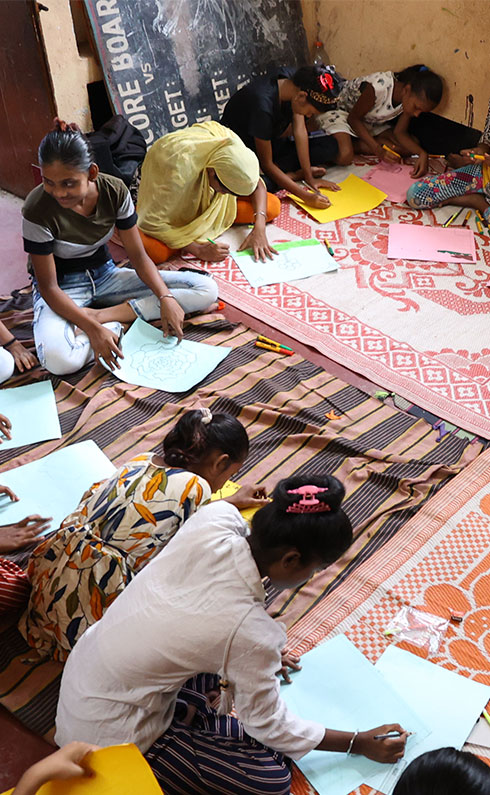
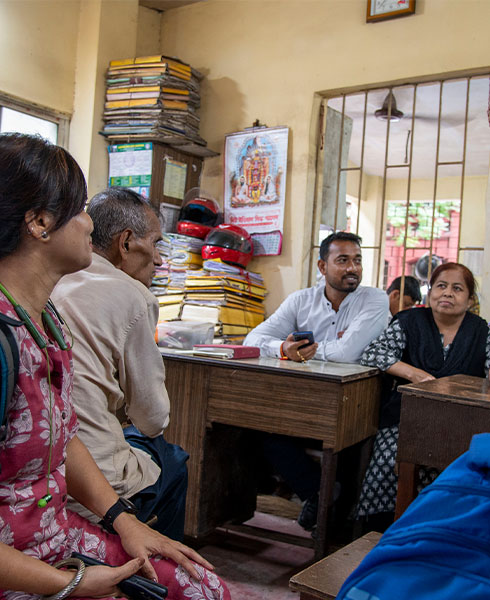
Other Studies
- Contracting out to improve maternal health: Evaluating the QoC under the Chiranjeevi Yojana in Gujarat, India – Farouk Muhammad Jega, 2007
- Global Priorities and Local Realities: Exploring what happens to Children identified with Acute Flaccid Paralysis under the Pulse Polio Programme in Uttar Pradesh, India – RieYotsu, 2008 (this study was subsequently published in BMC Public Health)
- Exploring the Healthcare Needs of Women Who Experience Violence in Uttar Pradesh, India – Nabtta, 2009
- Systems, Stigma and Satisfaction: Quality of Maternal Care for Women Living with HIV in Uttar Pradesh, India – Jenna Udren
- Qualitative Assessment of the Tuberculosis Care System for Migrant Urban-Industrial Workers living in Kapas Hera – Joseph Benedict, 2010
- Franchising Mechanisms in Uttar Pradesh, India: Working for the Poor People? Equity and Quality Aspects – Eduardo Celades Blanco, 2010
- Meeting the Health Needs of Domestic Violence Victims: Assessing the Utilization of Domestic Violence Law and Health Services Preparedness in Coastal Orissa – Robert A.Baker White, 2010
